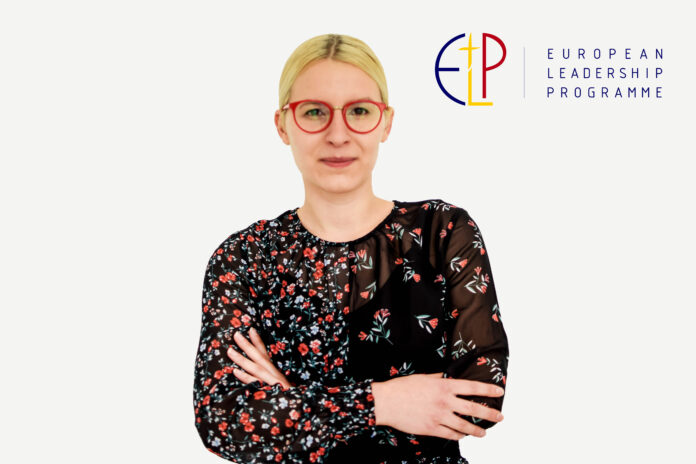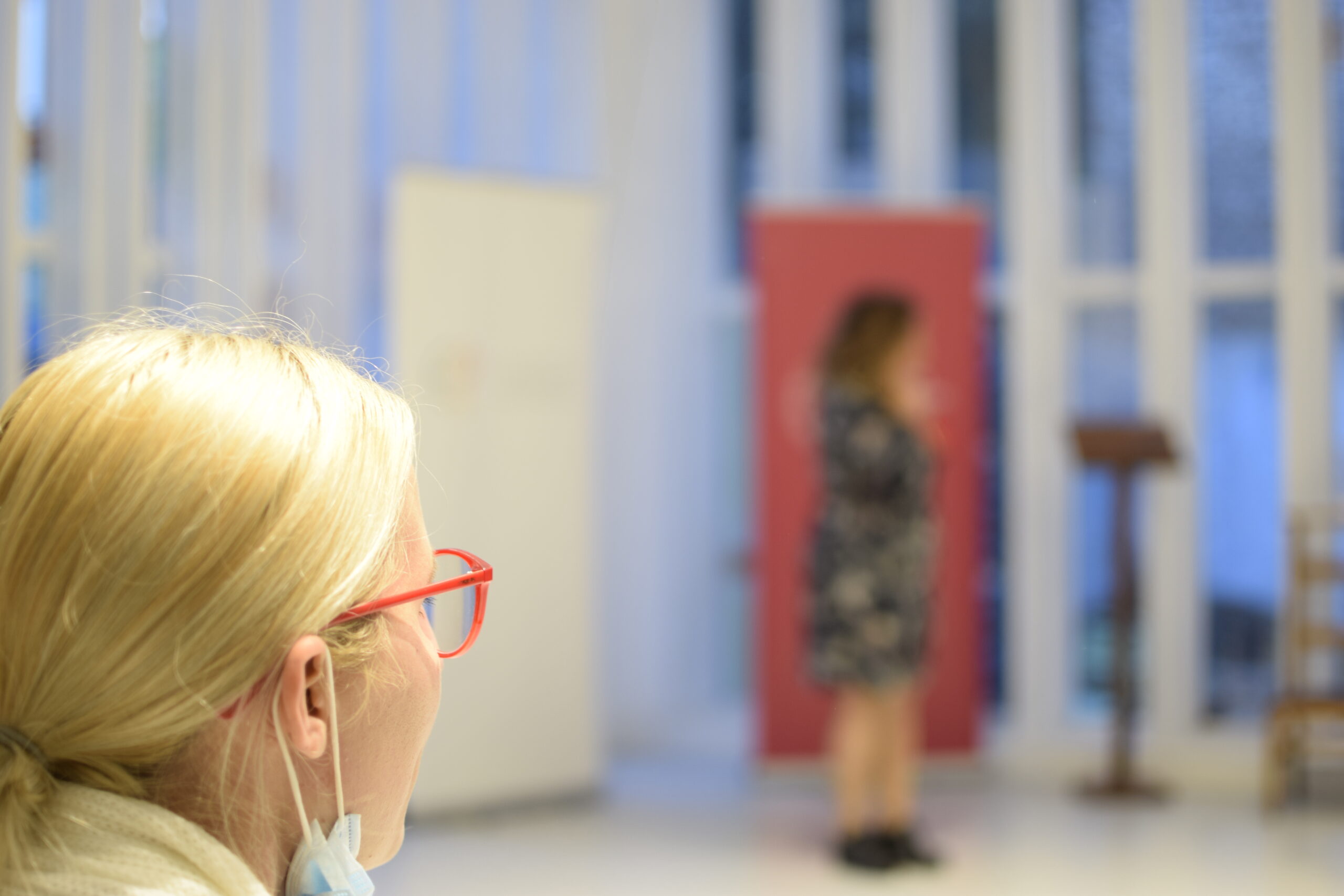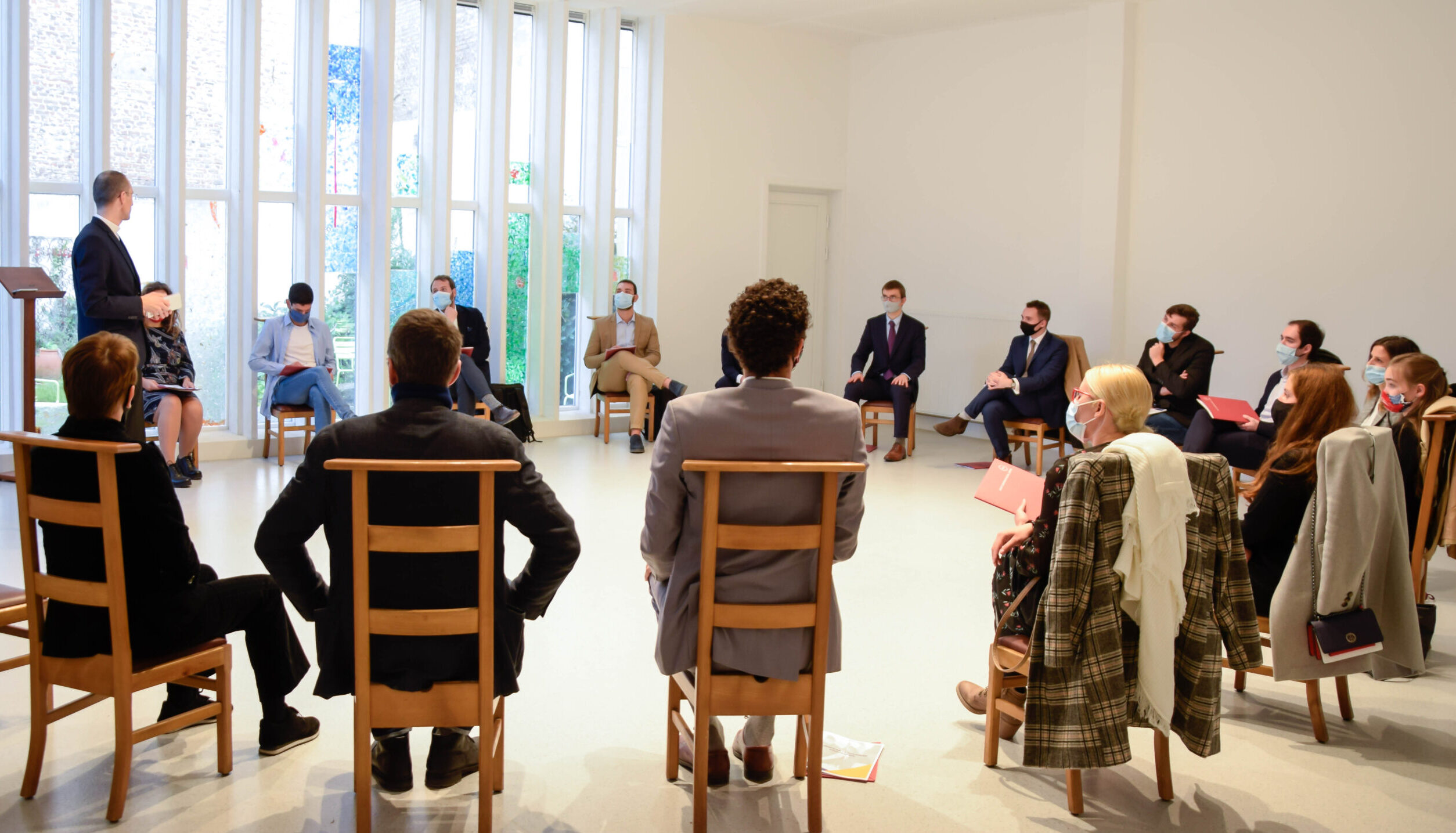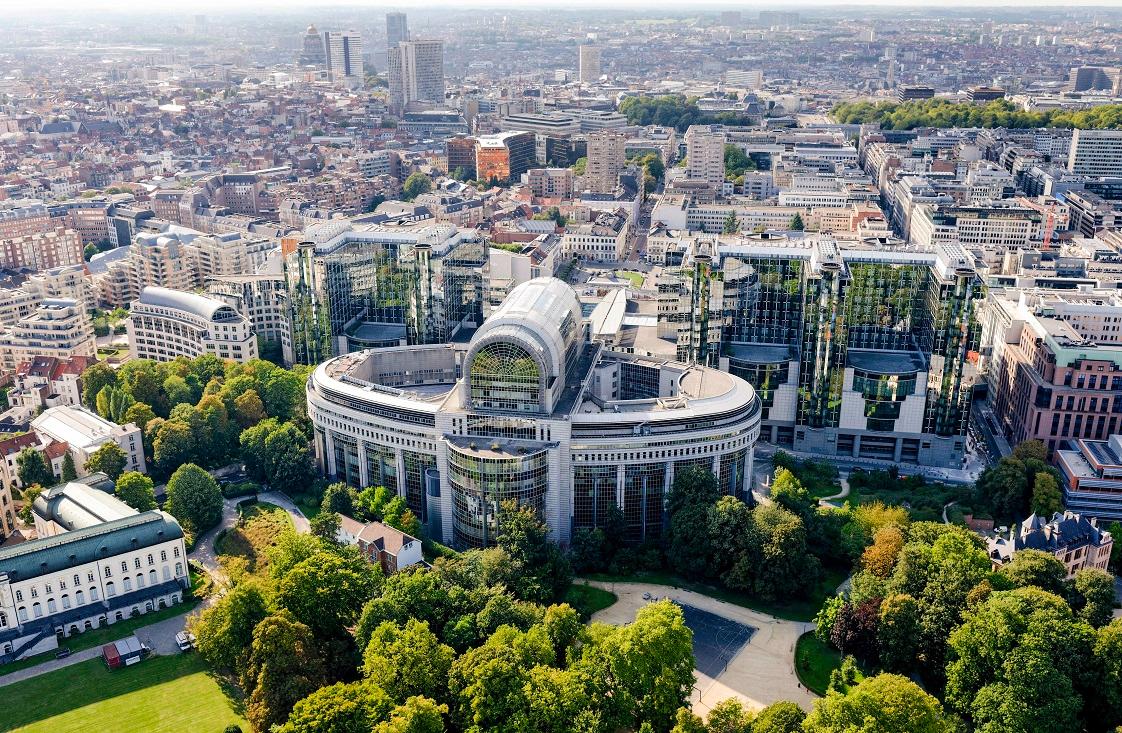The European Leadership Programme is about personal and professional growth. It opens a career pathway for those who want to become European leaders. It also gives them the possibility to decide how to manage their life in Brussels and define their learning process. The ELP involves commitment, effort, interest, curiosity, meeting deadlines, participation in sessions and discussions and community life. With the purpose of inaugurating its 4th edition, the European Leadership Programme (ELP) will interview the Fellows to share their impressions, expectations, ambitions and general thoughts linked to the Programme and their new life in Brussels, the EU Capital.
Name: Ivana Geto
Country: Croatia
Traineeship placement: Federation of Catholic Family Associations in Europe (FAFCE)
Who are you? We want to get to know you.
Tell us a bit about yourself.
I am Ivana Geto, from Osijek, Croatia. I recently graduated with a Master’s in Political Science on the topic of regulation of lobbying as an instrument of anti-corruption policies. At the beginning of my studies, I realised that academic achievement has to be accompanied by real-time experience. So I decided to join activities ranging from trade unions to European Parliament. That idea of learning how “things function in practice” has been a one of the driving forces behind my choices.
Describe yourself in three words.
Smiling, curious, persistent.

What are your interests or hobbies outside of work?
People, people and people! Needless to say, I’m 110% extrovert and I enjoy and recharge while spending time with my friends. It would usually be visit to theatre or an exhibition or dancing. Apart from that some kind of physical activity such as roller skating and cycling or reading, if I really want to enter “another world”.
Do you have any inspirational person or quote?
St. John Paul II – and his joyful approach to life and other people despite all suffering he endured. Whenever I am in doubt, I always remind myself of his words. And in recent time St. Josemaria Escriva and his approach of, trying to, sanctify every segment of your day and life. Recent Escriva’s quote that I’ve been contemplating during this Programme and my internship is: “Put your heart aside. Duty comes first. But when fulfilling your duty, put your heart into it. It helps.”
What motivates you in life/ What are you passionate about?
There are two emotions that drive me – immense irritation by injustice and overwhelmingly, warm feelings of the importance of human dignity. When it comes to injustice, what strikes me the most is the issue of corruption which inflicts harmful consequences on people’s everyday life.
On the other side, there is this beauty to human dignity that should be protected in all of its forms regardless of time and space. If I have to combine these two motivations, they would be expressed in this quote from an unknown author: “Society exists to serve the people within it. There is no such thing as a person being useless to a society, only a society that is useless to a person.”
Career Goals
How would you describe your ideal job and how ELP can help you achieve that?
I don’t believe there would be an “ideal job” for me. I am open to go where ever God calls me. In this moment, I believe that is working in international fast-paced environment which challenges me to put my talents to use for others in terms of achieving justice and the protection of human dignity. The ELP helped me nourish and invest in discovering what my call is and how to implement it.
ELP Programme (aspirations and expectations)
What was your motivation to apply to the ELP?
I applied to the ELP because it seemed to be an unusual approach to leadership by combining volunteering and spiritual development. And it proved to be a winning combination for me. The EPL is helping me develop and achieve my personal development in order to become a professional who is at the service to others. The biggest challenge I had to face so far was to utilise opportunities during lectures to stir the discussion in the direction I was interested in. Unlike other leadership programme, the ELP offers Fellows the chance to take up the “moderator” role and engage in direct conversation with high-lever speakers.
Traineeships in times of COVID-19
How has Covid-19 affected your life and professional experience in Brussels?
As Croatians would say “na muci se poznaju junaci” (attempt of English translation would be “troublesome times help you recognise/yield heroes”). The pandemic only proves me how I am, together with my generation, ready to adapt promptly to new circumstances. If we cannot go outside, we can go inside by using this time for reflexion (something that we always postpone). In terms of professional experience, my co-workers are extremely kind and empathic which helped me feel like having traineeship in “normal times” for which I am very grateful.
How did COVID-19 affect your traineeship?
COVID-19 affected me as everyone else with lack of social contact and networking, travel restrictions and worry about the whole situation. However, this environment helped me focus more on traineeships in a sense of being completely immersed in what I am doing and how I can contribute even more.
Lifestyle in Brussels
Tell us a bit about the experience of sharing a house in Brussels.
It’s great! We are all of similar age and vary in experience which often ends up in random discussions on every topic imaginable – e.g. this week we talked about the role of women in Church hierarchy, the importance of investing in good food and home birth. Apart from every topic being open, as a group we complement each other – people are introducing new habits learned from other roommates such as cooking or running.
Can you describe what a typical day in your life in Brussels looks like?
It start with my roommates greeting me in Croatian (it was actually their wish to learn it!) which is a nice beginning of a day. Then I start working while sharing “co-working” space with my roommate – which gives us “office vibes”. Around lunch time all my roommates slowly gather exchanging experiences from the morning while listening to music or sunbathing. After work we usually go for a walk or prepare a dinner together – very often accompanied by our attempts to become a band since we found guitar in the street.
How are you adapting to Brussels and to this new experience outside your country?
Once I accepted situation as it is, it works great. I was in Brussels before the pandemic. This period gives me opportunity to meet the town in a different way- by exploring forests, parks and volunteering opportunities.
Leadership
How do you think ELP will help you in the path of becoming a better leader?
In the past months I learned that ELP, along with the typical content Leadership Academies offer, invites fellows to seek deeper reasons behind their choices. The most useful habit I’m trying to learn with the help of ELP is how to discern what my call is and how to apply it in my professional development. If I know the answer to the question Why am I doing something, the process of improving my skills becomes much easier.
What leadership skills did you learn so far/or except to learn?
Through discussions and lectures we had so far, I have learned that there is always an additional story behind people’s career choices – not everything is as you see it on the news. By the end of this programme, I would like to additionally improve my skills on having debate with people who challenge my opinions.
ELP encourages Fellows to engage in community service through volunteering. What do you think about Volunteering and what are your plans to volunteer?
Opportunity that ELP offers in a form of volunteering was one of the reasons why I decided to apply to the programme and eventually started volunteering in logistical support at the Red Cross Food Distribution Centre. Too often Leadership Academies neglect the important feature leaders need to have and that is being able to help others in the present moment. Volunteering is not about learning about other people’s realities. Its about offering them concrete help and by that shaping the society in which we want to live – the ultimate practise of democracy. In the future I would like to volunteer in NGOs that offer mental health services to people as mental health care is so essential for person’s well-being.
What part of the Programme you are looking forward to the most; meeting any speaker, a specific lecture or activity?
I am looking forward writing my paper since we have opportunity to identify problems we see and by all assistance ELP offers research it in the light of Laudato Si. In addition, I am grateful for mentors who guide me through this programme who, by the providence of God, meet me at right moment of my career.
dignity dignity dignity dignity dignity





